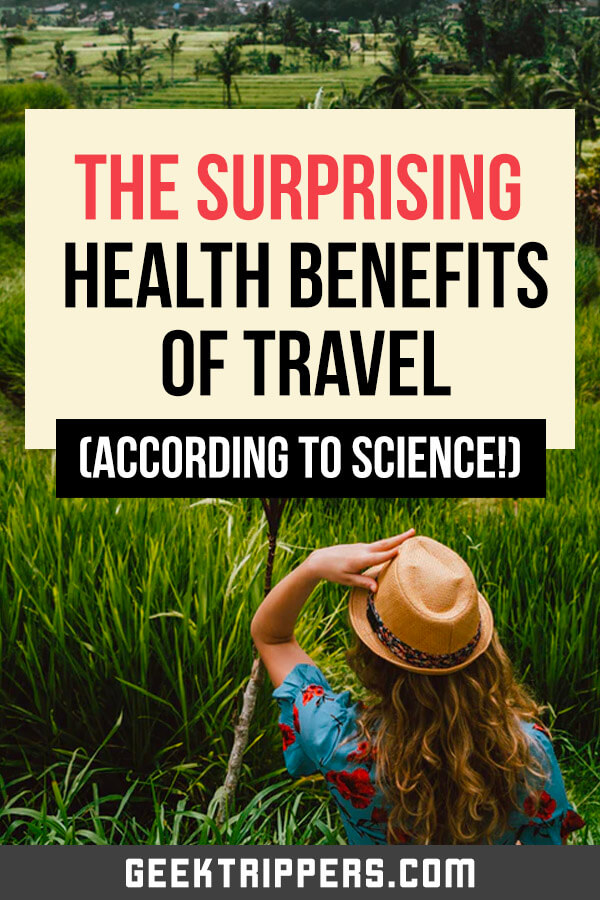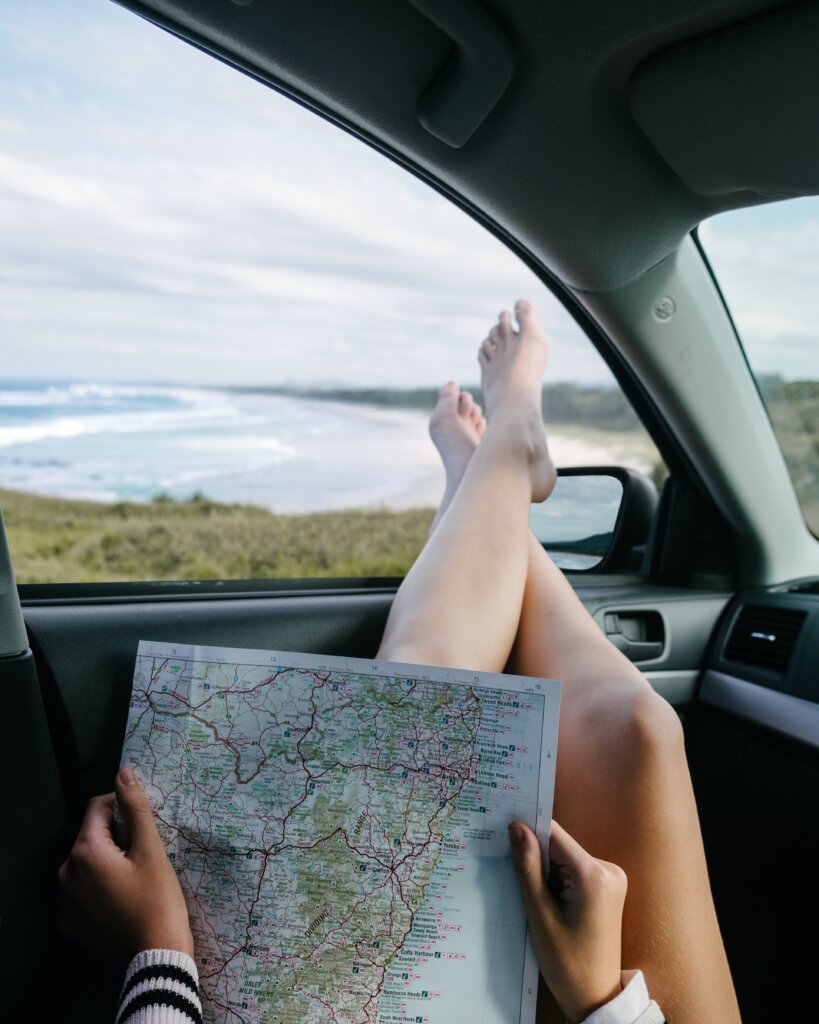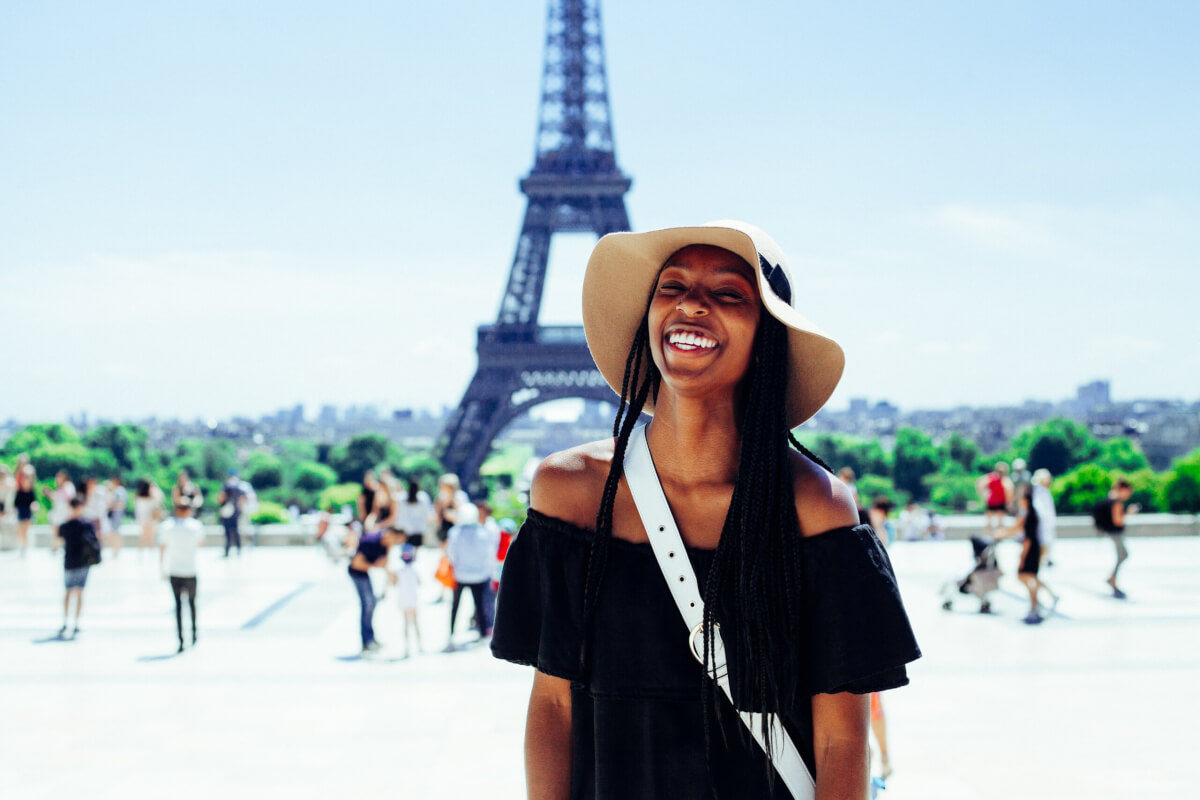*FYI - this post may affiliate links, which means we earn a commission (at no extra cost to you) if you purchase from them. Also, as an Amazon Associate I earn from qualifying purchases. For the full scoop on what this means, feel free to check out our Privacy Policy and Disclosure.
While we’re sure you don’t need any further motivation to travel and see the world, we’re here with some great news today, geektrippers! Science is telling us to go for it.
That’s right – while the benefits of travel have been anecdotally documented for centuries (from your friend who “found himself” through backpacking to your kooky aunt who mended her broken heart in Bali), the correlation between travel and positive health benefits have become an increasingly popular topic of scientific study…
And we think you’ll like the results!
So, from sharpening creativity and understanding to relieving stress and improving overall satisfaction with life, here are some scientific studies that prove what we’ve known all along – travel really does make life a whole lot better. Feel free to smugly send this along to any friends or family who have doubted you.
Save this post for later on Pinterest:

1. Travel makes you more trusting of others
There’s an oft-quoted phrase from Mark Twain that goes “Travel is fatal to prejudice, bigotry, and narrow-mindedness”… and while most travellers themselves likely feel this to be true, an American study published in 2013 uncovered a possible reason why: foreign travel experiences increase generalized trust (i.e. trust in other members of society and the benevolence in human nature).
In a paper titled “Does Travel Broaden the Mind? Breadth of Foreign Experiences Increases Generalized Trust”, (accessible here) Cao, Galinsky & Maddux explored the relationship between the breadth and depth of foreign experiences on generalized trust through five different studies which involved participants playing a trust game.
In the paper, they concluded that “across five studies, regardless of the types of research method, the cultural samples and operationalizations of generalized trust, we consistently found a robust relationship between the breadth of foreign travel experiences and increases in generalized trust.” In other words, across the board, they found a consistent relationship between those who had many foreign travel experiences and the amount in which they showed a trust in others.
In another 2011 article titled “Cognitive Adaptation to the Experience of Social and Cultural Diversity” (accessible here), Crisp and Turner also found that “experiencing diversity that challenges expectations may not only encourage greater tolerance but also have benefits beyond intergroup relations to varied aspects of psychological functioning”.
So, turns out travel really does broaden the mind…. and sharpen it.

2. Multicultural experience makes you more creative
In a 2008 paper titled “Multicultural experience enhances creativity: The when and how” (accessible here), Leung, Maddux, Galinksy and Chiu examined the relationship between exposure to multiple cultures and creativity.
In it, they conclude that “multicultural experience is positively related to performance in solving a problem that requires insight and to producing creative ideas without being confined to the widely known. It also predicts creativity-supporting processes such as the tendency to access unconventional knowledge from memory and to recruit ideas from foreign cultures for creative idea expansion.” So there you go, exposure to new cultures does indeed get those creative juices flowing.
Of course, it’s not just about checking into a glitzy resort and lazing on the beach all day. Immersing yourself in these cultures is important too. As they state in their paper, “the relationship between multicultural experience and creativity is particularly strong when people adapt and are open to these new experiences”
In fact, some studies have even shown that simply thinking of a foreign place can incite creativity. In the 2009 article “Lessons from a Faraway land: The effect of spatial distance on creative cognition” (accessible here), Jia, Hirt, and Karpen found that when “a creative task is portrayed as originating from a far rather than close location, participants provide more creative responses… and perform better on a problem solving task that requires creative insight”. Pretty interesting, no?

3. Even Short Trips Can Reduce Stress
Can short getaways help improve your health and well-being too? Apparently yes!
In a 2018 study titled “Short Vacation Improves Stress-Level and Well-Being in German-Speaking Middle-Managers—A Randomized Controlled Trial” (accessible here), authors Gatterer, Leichtfried, Pollhammer, Mair-Raggautz, Duschek, Humpeler, and Schobersberger found that “one single short-term vacation, independent of the mode, has large, positive and immediate effects on perceived stress, recovery, strain, and well-being.”
So… there you go – plan that long weekend trip in the name of wellness!
4. But Travel Overall is Linked with Overall Satisfaction in Health & Well-Being
Perhaps less scientific, but interesting nonetheless, is a study conducted by the Transamerica Center for Retirement Studies® (TCRS) and Global
Coalition on Aging (GCOA) in 2013 (accessible here). This study (through surveys) found the following results:
- American travelers experience greater satisfaction in overall mood and outlook vs non-travelers
- American travelers report greater satisfaction in their physical health and well-being vs. non-travelers
- 82% of American retirees who travel report being satisfied with their “ability to get things done,” vs. only 57% of retirees who do not travel
You can read more about the survey’s findings here.

5. Even just waiting/planning for a trip can make you happier
We’re big believers in the old adage that you should “buy experiences, not things”. After all, experiences are one of those gifts that evoke happiness at every phase, from the anticipation before, the joy during, and the nostalgia after.
Well, it turns out science does confirm the benefit of buying experiences, especially when it comes to the anticipatory lead-up phase.
In a 2014 article titled “Waiting for Merlot: Anticipatory Consumption of Experiential and Material Purchases” (accessible here), Kumar, Killingsworth, and Gilovich compared experiential purchases (like travel) vs. material purchases (like a new TV) and found that “waiting for an experience elicits significantly more happiness, pleasantness, and excitement than waiting for a material good.”
So, that’s right – even waiting for a trip can enhance happiness. Go ahead and book!

Other Studies that Show the Positive Effects of Travel
Of course, the selection above is only a small fraction of the research out there about the impact of travel and well-being!
If you’re craving more scientific backing for your wanderlust, we recommend an article titled “Health and Wellness Benefits of Travel Experiences: A Literature Review” (available here).
In it, authors Chen and Petrick conduct an analysis of existing literature and research in the field, testing a variety of hypotheses including the ideas that travel makes you less stressed and improves physical wellness. We think you’ll like what they found!

So, do you agree with science? Do you think travel improves quality of life?
We’re sure we know the answer already, but we hope you enjoy sending this article off to all your haters and dubious family members! Happy geektripping… in the name of science!

